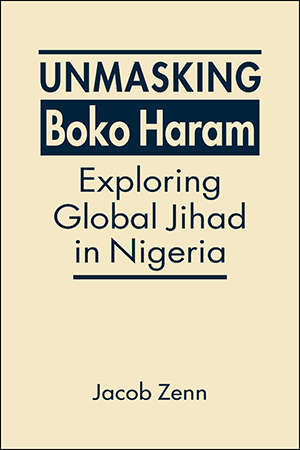
- 2020/415 pages
- Published in association with the Handa Centre for the Study of Terrorism and Political Violence, University of St Andrews
Unmasking Boko Haram:
Exploring Global Jihad in Nigeria
Hardcover: $105.00
ISBN: 978-1-62637-878-0
Ebook: $105.00
ISBN: 978-1-62637-893-3
The kidnapping of 276 schoolgirls from the village of Chibok, Nigeria, in 2014 drew the world's attention to the previously little-known extremist group Boko Haram. Numerous questions followed, among them: Where did Boko Haram come from? What explains the rise of this militant Islamic group and its increasingly violent actions? What is its relationship to the Islamic State?
Jacob Zenn addresses these questions in his detailed chronicle of the foundation of Boko Haram, its strategy and tactics, and its evolution as a global Jihadist movement. Drawing on exclusive interviews and extensive primary sources in Arabic and Hausa, Zenn reveals the group's inner workings and the dynamics of its trajectory.
Click here to view the author's personal website, which contains videos of his interviews and other resources.
Jacob Zenn addresses these questions in his detailed chronicle of the foundation of Boko Haram, its strategy and tactics, and its evolution as a global Jihadist movement. Drawing on exclusive interviews and extensive primary sources in Arabic and Hausa, Zenn reveals the group's inner workings and the dynamics of its trajectory.
Click here to view the author's personal website, which contains videos of his interviews and other resources.







